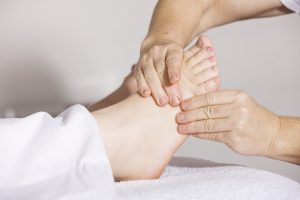Treating Depression with Alternative Medicine
Depression is a complex and pervasive mental health disorder that affects individuals of all ages and backgrounds. It is characterized by persistent sadness,loss of interest or pleasure in activities,changes in appetite and sleep patterns,fatigue,difficulty concentrating,feelings of worthlessness or guilt,and thoughts of death or suicide. Additionally,depression can manifest in various physical symptoms,such as headaches,stomachaches,or unexplained aches and pains. The severity and duration of these symptoms can vary from person to person,and they often interfere with daily functioning and overall Quality of life.
Understanding the nature and symptoms of depression is crucial for establishing a foundation to explore potential treatment options. It allows healthcare professionals to accurately diagnose the condition and develop an individualized treatment plan tailored to each patient’s needs. By gaining a comprehensive understanding of depression,we can strive towards providing effective interventions that address not only the symptoms but also the underlying causes of this debilitating mental health disorder. With the vast array of treatment options available,it is important to explore and evaluate each approach in order to provide the best possible care for those struggling with depression. A resource or website for https://telehealthtoday.net/practitioners/emotional-support is strongly recommended in this scenario.
The Limitations of Traditional Antidepressants
Traditional antidepressant medications,while widely prescribed and commonly used,have several limitations in effectively treating depression. One significant drawback is their slow onset of Action. These medications often require several weeks or even months of consistent use before any noticeable improvement in depressive symptoms is observed. This delay can be frustrating for individuals who are seeking prompt relief from their distress and can contribute to a lack of treatment adherence.
Another limitation of traditional antidepressants is their limited efficacy in certain individuals. While these medications can be effective for some individuals,studies have shown that they may not be equally beneficial for everyone. In fact,only about 50-60% of individuals with depression experience a significant reduction in symptoms when treated with traditional antidepressants. This indicates that a substantial portion of the population may not fully respond to these medications,necessitating the exploration of alternative treatment options. Introducing doctors like the practitioners on telehealthtoday.net and their litany of new & unique treatments,mixing ancient medicine with modern and future medicine.
Please review or contact https://telehealthtoday.net for more information on depression treatment.



